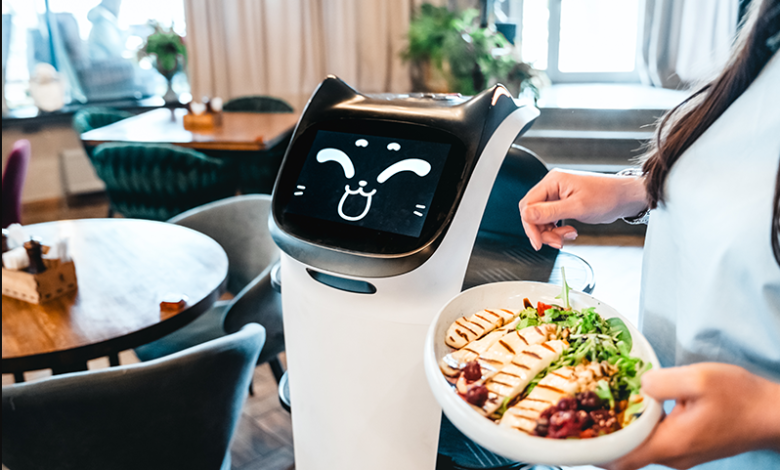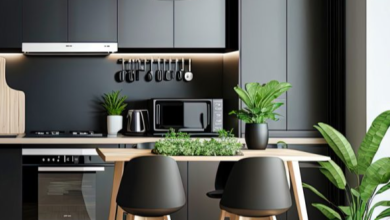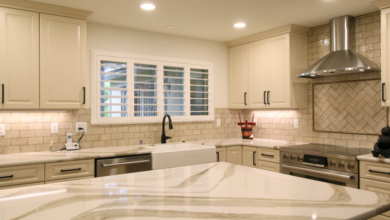Innovations Shaping The Future Of Smart Kitchens

Introduction To Smart Kitchens
A smart kitchen is a modern space designed to improve cooking efficiency, convenience, and safety using connected devices and innovative technologies. From automated appliances to voice-controlled systems, the smart kitchen is transforming how people prepare meals and manage their households. As food and beverage trends evolve, the demand for intelligent kitchen solutions continues to grow.
What Makes A Kitchen Smart?
A smart kitchen integrates technology and connectivity into daily cooking and kitchen management. These features help users save time, reduce energy consumption, and improve cooking outcomes. Essential components of a smart kitchen include:
- Smart refrigerators with temperature control and inventory tracking
- Wi-Fi-enabled ovens and cooktops for remote operation
- Smart faucets and dishwashers for water efficiency
- Connected scales and cooking devices for precise measurements
- Voice assistants to control appliances hands-free
These devices are often managed through mobile apps, making it easy for users to operate them even when away from home.
Benefits Of A Smart Kitchen
There are multiple advantages to using a smart kitchen in both residential and commercial food environments. Some of the most notable benefits include:
Time Efficiency
Smart appliances automate many routine tasks. For example, a connected oven can preheat before you arrive home, and a coffee maker can start brewing at a preset time.
Energy Conservation
Smart devices monitor energy usage and operate more efficiently than traditional appliances. Users can track electricity and water consumption, contributing to sustainability efforts.
Enhanced Cooking Accuracy
A smart kitchen improves recipe consistency. Devices can automatically adjust temperature, cook time, and even measure ingredients for optimal results.
Convenience And Remote Control
With integrated apps and voice control, users can manage multiple devices from a single interface. This allows multitasking and reduces the time spent in the kitchen.
Increased Safety
Smart smoke detectors, auto shut-off functions, and real-time alerts help reduce the risk of kitchen fires and gas leaks.
See also: Why Every Home Needs Personalized Interior Design
Smart Kitchens In The Food And Beverage Industry
In the food and beverage industry, the smart kitchen concept is gaining traction among restaurants, cafes, and catering businesses. These environments benefit greatly from automation and technology-driven precision.
Restaurant Kitchens
Commercial kitchens use smart ovens, temperature sensors, and order management systems to ensure food is prepared consistently and delivered quickly.
Cloud Kitchens
A cloud kitchen is an ideal example of smart kitchen integration. These facilities rely on minimal staff and maximum automation to fulfill food delivery orders efficiently.
Food Safety Compliance
Smart kitchen tools can log cooking temperatures, monitor food storage conditions, and ensure hygiene standards are met—critical for regulatory compliance.
Popular Smart Kitchen Devices
Here are some of the most popular devices found in a smart kitchen setup:
Smart Refrigerators
These appliances track inventory, alert users when items are running low, and even suggest recipes based on available ingredients.
Smart Ovens
They can be controlled via smartphone and offer features like automatic cooking programs, temperature sensors, and self-cleaning functions.
Voice Assistants
Devices like Alexa and Google Assistant enable hands-free control of timers, appliance settings, and even online recipe searches.
Smart Cooktops
These surfaces can automatically detect the type of cookware used and adjust heat levels accordingly.
Connected Coffee Makers
Coffee machines can be programmed remotely, ensuring a hot cup is ready when needed without manual intervention.
Challenges In Adopting Smart Kitchen Technology
While a smart kitchen offers many advantages, there are a few challenges that consumers and businesses may encounter:
High Initial Investment
Smart kitchen appliances can be more expensive than traditional models, requiring a larger upfront investment.
Compatibility Issues
Not all devices are compatible with each other or with home automation systems. This can lead to limitations in creating a fully connected kitchen.
Learning Curve
Some users may find it difficult to adapt to new technology, especially if they are not familiar with apps or digital interfaces.
Data Privacy Concerns
Connected devices collect and transmit data, which raises concerns about privacy and cybersecurity.
The Role Of Artificial Intelligence
Artificial intelligence plays a key role in the advancement of the smart kitchen. AI systems can:
- Learn user habits and suggest personalized cooking schedules
- Recommend recipes based on dietary preferences
- Optimize appliance performance for energy and time savings
- Detect faults in appliances before they become serious problems
AI-enabled devices bring a level of intelligence that transforms basic automation into smart decision-making assistance.
Sustainability And Eco-Friendly Living
A smart kitchen contributes to sustainability in various ways. For example:
- Reducing food waste by tracking expiry dates
- Monitoring water and energy usage to minimize consumption
- Encouraging plant-based meal planning through personalized recipes
- Integrating composting solutions with waste management systems
These features align well with the global shift toward eco-conscious living.
The Future Of Smart Kitchens
The evolution of the smart kitchen will continue as technology advances. We can expect:
- Greater integration with health monitoring systems
- Fully voice-activated cooking workflows
- Robotic arms for automated cooking in both home and commercial settings
- Seamless coordination between kitchen devices and grocery delivery services
As the smart kitchen becomes more intelligent, personalized, and accessible, it will redefine the relationship between people and food.
Tips For Creating A Smart Kitchen
If you’re considering upgrading your kitchen, here are a few tips:
- Start with one or two essential devices, such as a smart oven or coffee maker
- Ensure all appliances are compatible with your preferred home assistant
- Focus on devices that solve specific pain points in your cooking routine
- Choose reliable brands with strong customer support and app updates
- Consider energy efficiency ratings and long-term maintenance costs
Creating a smart kitchen doesn’t have to be overwhelming. With thoughtful planning, anyone can transition to a more efficient and modern kitchen experience.
Conclusion
A smart kitchen is more than just a trend—it represents a transformative shift in how people cook, eat, and manage their homes. Whether you’re a home chef or a food business owner, embracing smart technology can enhance your productivity, improve food quality, and support sustainable living.
The integration of connected appliances, AI, and data-driven insights creates a kitchen environment that is responsive, intelligent, and user-friendly. As the food and beverage industry continues to evolve, the smart kitchen will play a central role in shaping future culinary experiences.





